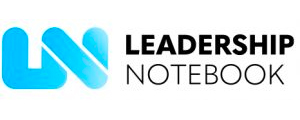Many of my coaching clients at the start of their leadership journey (and sometimes those further along) want to find an ‘answer’ or two – i.e., how do they become a ‘good’ leader and what specific skills do they need to learn.
The answer, of course, is that there is no one answer and no ‘right’ way.
This is a good thing, because it means that you can be yourself and find your own style, so long as you have an openness to learning and improving. The aim is to be really clear on who you are and what you stand for.
One of my favourite articles, written by Adam Bryant and Kevin Sharer, refers to the paradoxes of leadership: that is, the ‘inner game’ that we need to master in order to balance often-competing demands in different situations.
In addition, as this article suggests, it’s also important to find your own balance across several paradoxes and to develop your skills so that you know what to use when. It’s about being aware and being able to walk along a pathway that suits what you have in front of you.
This is a great article and I often refer some of my coaching clients to it. I’ve provided a summary below or you can check out the original article here. And while Bryant and Sharer talk about CEOs, this can be applied at any role level.
The article finishes with some useful questions that leaders can ask of themselves.
The aim is to get to a point where you are really clear on who you are and what you stand for, so that you can determine the balance within each paradox for yourself and adjust it according to circumstances.
Knowing yourself is the first critical step to good leadership.
What paradoxes can you identify with your own leadership behaviour?
“Can you master the inner game of leadership?”
A summary of an article by Adam Bryant and Kevin Sharer, strategy+business, 2021
Bryant and Sharer note that experience is the best teacher but start with the premise that “mastering the inner game of leadership is to embrace leadership as a series of paradoxes”. It’s a continual process of fine-tuning in which leaders will get things right one day and wrong the next. Let’s look at the seven paradoxes in their article.
Be confident
and humble
Confidence helps you to inspire others, to articulate a clear vision, and to rely on your past record of good decisions.
Too much confidence turns to arrogance and the antidote to that is humility. This means being open to not knowing, and open in explaining your mistakes.
Humility also models a growth mindset that encourages others to be open with their mistakes and helps to enable learning and development.
Be urgent
and patient
This is about a balancing act between now, soon, and later.
For example, getting people up to speed or developing their skills takes your time and energy (going slow), but this will speed things up later. Or it may be that you need to slow down to bring people along a change journey, and if you do this then the journey will be quicker down the track.
Sometimes this patience may be seen as not being assertive or demanding enough, so it’s important to be clear on your intent and the balance you are seeking.
Be compassionate
and demanding
The demands for exceptional performance need to take account of the human beings who are doing the work.
This requires a level of compassion and understanding of the people as well as holding them accountable – the trick is to know when to push what.
Try to take the opposite view to your default behaviour: e.g., tap into your compassion before having a tough conversation; or alternatively remind yourself that everyone has their issues and this doesn’t necessarily absolve them of their accountabilities.
Be optimistic
and realistic
Getting the balance right here helps to build trust and loyalty.
Be optimistic and build energy and enthusiasm for the vision and the goals; also share the risks, the potential for potholes and any contingency plans without overwhelming the team. And if it goes pear-shaped, then make the situation transparent.
Read the weather
and set it
This is about paying attention to the ‘mood’ or morale of your team; being able to ‘read’ the weather’ and what is not being said, without letting it unduly affect you or pull you off track.
It’s also about understanding the dynamics between the morale of the team and your own behaviour and interactions – that is, the leader plays a key role in setting the prevailing mood and this is the leader’s responsibility to shape and address.
Create freedom
and structure
A balance within this paradox allows the messiness and confusion of creativity and innovation, but then brings in the structure when a decision is made and it’s time to move forward.
The nature of work being done will affect the balances here (i.e., the size of the margin for error), but leaders can still allow themselves and their teams space for thinking and wandering down (potentially unproductive) blind alleys.
Be selfless
and focus on your well-being
We can best summarise this paradox with a quote from the article:
“The very best leaders are selfless — it is not about you, but rather what you can do for the people you lead and for your organization. Yet if you aspire to be that selfless leader, then you must learn to take care of yourself first.”
What paradoxes can you identify with your own leadership behaviour?



